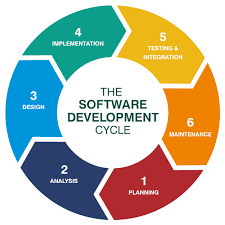Docker, a powerful open-source platform, has transformed the way software is developed, deployed, and scaled. By encapsulating applications and their dependencies into standardized units called containers, Docker offers a consistent and efficient approach to software development and deployment. This white paper explores the key concepts, benefits, and practical use cases of Docker in the software development lifecycle.
Docker in Action: Revolutionizing Software Development
Introduction
Docker, a powerful open-source platform, has transformed the way software is developed, deployed, and scaled. By encapsulating applications and their dependencies into standardized units called containers, Docker offers a consistent and efficient approach to software development and deployment. This white paper explores the key concepts, benefits, and practical use cases of Docker in the software development lifecycle.
Key Concepts
- Container: A standardized unit of software that packages code and all its dependencies, such as libraries, frameworks, and system tools.
- Image: A read-only template used to create containers.
- Dockerfile: A text document that contains instructions for building a Docker image.
- Docker Compose: A tool for defining and running multi-container Docker applications.
Benefits of Using Docker
- Consistency: Ensures that applications run consistently across different environments, eliminating the "it works on my machine" problem.1
- Efficiency: Reduces the overhead of virtual machines, allowing for faster deployment and scaling.
- Portability: Enables easy movement of applications between different environments, such as development, testing, and production.
- Isolation: Isolates applications from each other, preventing conflicts and improving security.
- Rapid Deployment: Streamlines the deployment process, allowing for faster time-to-market.
- Scalability: Facilitates easy scaling of applications to meet changing demands.
Use Cases in the Software Development Lifecycle
1. Development:
- Consistent Development Environments: Create standardized development environments for developers, ensuring consistency across teams and projects.
- Rapid Prototyping: Quickly iterate on ideas and build prototypes by leveraging pre-built Docker images.
- Microservices Architecture: Develop and deploy microservices independently, promoting modularity and flexibility.
2. Testing:
- Isolated Testing Environments: Set up isolated testing environments for unit, integration, and system testing.
- Test Automation: Automate testing processes by using Docker containers to provision test environments.
- Performance Testing: Simulate real-world load conditions by scaling Docker containers.
3. Deployment:
- Container Orchestration: Use tools like Kubernetes to orchestrate and manage Docker containers at scale.
- Continuous Integration/Continuous Delivery (CI/CD): Automate the build, test, and deployment pipeline using Docker.
- Infrastructure as Code: Define and manage infrastructure using configuration files, such as Docker Compose.
4. Operations:
- Application Isolation: Run multiple applications on a single host, improving resource utilization and reducing costs.
- Disaster Recovery: Quickly spin up replacement systems in case of failures.
- Security: Enforce security best practices by using container security tools and techniques.
References
- Books:
- "Docker in Action" by Jeff Nickoloff
- Online Resources:
- Docker Documentation: https://docs.docker.com/
- Kubernetes Documentation: https://kubernetes.io/
- Research Papers:
- IAS-Research - https://www.ias-research.com/index.php/softengg/spring-and-spring-boot
Conclusion
Docker has revolutionized the way software is developed, deployed, and managed. By embracing Docker, organizations can streamline their development processes, improve application reliability, and accelerate time-to-market. As Docker continues to evolve, it will undoubtedly play a crucial role in shaping the future of software development.
Would you like to delve deeper into any specific use case or explore advanced topics like Docker security, networking, or storage? Contact keencomputer.com for details.
